Long-standing gains continue with Japan
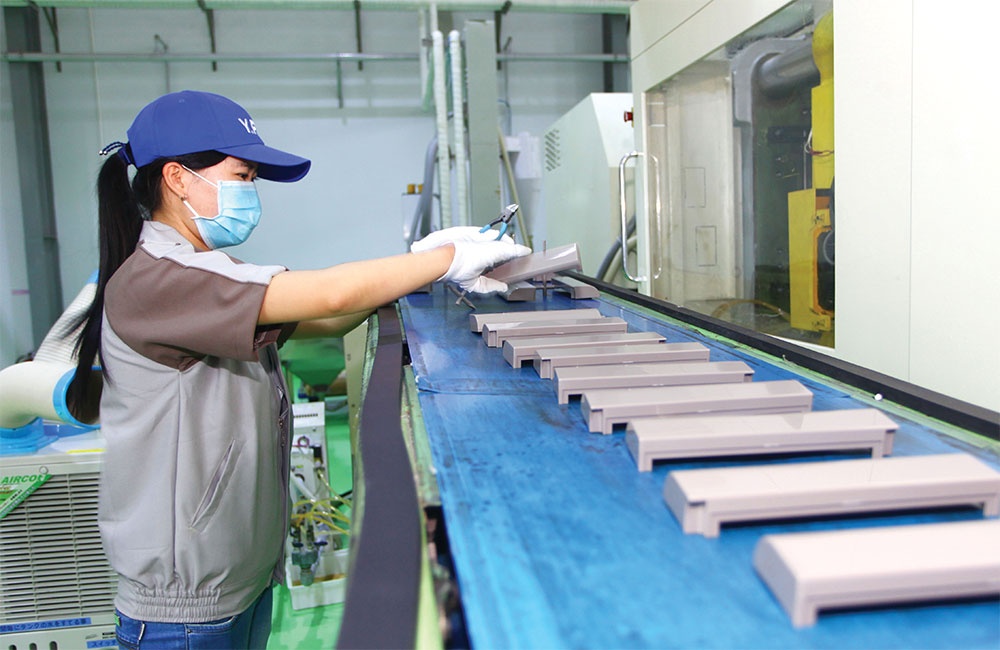 |
| Japanese investors are appreciating that Vietnam’s business environment is improving, photo Le Toan |
Discussing the latest updates involving the long-established Vietnam-Japan Joint Initiative (VJJI), a Ministry of Planning and Investment (MPI) representative said that almost 500 of 600 tasks worked on over the last couple of years have either been completed or are on schedule.
The VJJI has been in force for almost 20 years, and is one of the most effective channels of dialogue between businesses, contributing positively to improving the investment environment in Vietnam.
The agreement was initiated in 2003 and has undergone an 8-phase plan over the past 18 months to tackle various issues. The general objective of the joint initiative has been to support the improvement of Vietnam’s investment environment and competitiveness through policy dialogues between the Vietnamese government, and representatives of Japan business community in this country.
Minister of Planning and Investment Nguyen Chi Dung acknowledged the success of the VJJI thus far. “The results have built confidence for foreign investors to confidently expand activities in Vietnam,” he said at last week’s Vietnam-Japan High-Level Economic Conference.
Nakajima Takeo, chief representative of the Japan External Trade Organization, said that a survey on parent companies in Japan proclaimed the attractiveness of Vietnam as a funding destination, ranking second after the US. It noted that 60 per cent of responded Japanese firms would expand in Vietnam in the next two years.
The VJJI and other efforts from the Vietnamese government have contributed to the current trend of investing and expanding Japanese enterprises. For example, AEON Mall has just started construction of a new shopping centre in the central province of Thua Thien-Hue. With a total investment of more than VND3.9 trillion ($170 million), this will be AEON’s largest commercial centre in Vietnam.
Meanwhile, Fujikin, a manufacturer of fluid control systems such as valves and fittings, has been building a research and development centre in the central city of Danang; and earlier this year, the president of Tenma Corporation arrived in the north-eastern province of Quang Ninh to propose a printer plastic injection mold factory with a scale of $150 million.
Sharp Corporation also plans to expand investment and build one more large-scale factory to produce high-tech electronic products in the southern province of Binh Duong.
“We are looking for some investment opportunities in southern provinces to relocate the supply chain out of China, in addition to two factories in VSIP I and II already,” said the chairman of Sharp Corporation. “We highly appreciate the investment and business climate, infrastructure, and human resources in Vietnam, which are being improved day by day.”
The commitment of these Japanese investors is said to be helped along by the VJJI, the most effective forum among the dialogue and cooperation forums of the two countries’ governments, said Minister Dung.
He added that with the goal of becoming a high-middle-income country by 2030, Vietnam is focusing on the application of sci-tech, promoting innovation, developing a green and digital economy, and much more.
“To implement these goals, we need the companionship of the business community, especially Japanese investments that have great potential and are suitable for the priority areas of Vietnam’s government,” Minister Dung suggested.
“Japanese businesses can recommend or propose Vietnam’s policies, focusing on technology transfer, digital, and green transformation, and innovation. Besides this, we also welcome Japanese firms to participate deeply in implementing mechanisms and policies, as well as help Vietnamese businesses to deeply participate in supply chains,” added the minister.
He further suggested Japanese working groups to coordinate with relevant ministries and agencies of Vietnam and localities to study and implement plans set forth, under the aid of the Japanese government.
“The MPI and other ministries and agencies will continue to accompany the Japanese business community, enhancing the performance and benefits for both sides, contributing to socioeconomic development, and deepening the relationship for the common prosperity of the two countries,” emphasised Minister Dung.
Hideo Ichkawa from Resonac Holdings, and co-chairman of the Vietnam-Japan Economic Committee, also highly appreciates the improvement of Vietnam’s business environment.
“Japan has already cooperated to develop supporting industries, human resources, and propose to build a more favourable investment environment in Vietnam. Celebrating 50 years of diplomatic relations in 2023 will be a turning point that opens up many prospects for cooperation and explores new potentials between the two countries,” said Ichkawa.
According to the MPI, as of date, Japan investors are operating 5,000 valid projects with total investment of about $70 billion, ranking third among 141 countries and territories investing into Vietnam. Vietnam has 104 projects invested in Japan at $19.2 million, ranking 36th among 79 countries and territories that Vietnam firms do outbound investment in.
| Tanaka Akihiko - President, Japan International Cooperation Agency
Japan and Vietnam established diplomatic relations in 1973 and this year marks an important milestone when both nations celebrate 50 years of diplomatic relations. Japan and Vietnam have a closer friendship than ever, demonstrated first with regular high-level governmental visit exchanges and contacts. Economically, especially in recent years with unpredictable developments around the world, Vietnam-Japan economic relations have become stronger than ever. Even during the peak of the pandemic, Vietnam was the only country in ASEAN that could record and continue maintaining a positive economic growth rate. Besides that, the fact that Vietnam can ensure an abundant and high-quality labour supply will be an advantage for it to attract Japanese enterprises that are studying to expand their investment abroad. In fact, the number of Japanese companies expanding their investment to Vietnam is increasing, and Vietnam currently has over 2,000 Japanese companies as members of the Japan Business Association, the second-largest figure after China. According to a survey by the Japan Bank for International Cooperation, Vietnam is the most promising investment destination in ASEAN for the past four years in a row. And under a survey by the Japan External Trade Organization for Japanese businesses operating in 20 countries in Asia and Oceania, 60 per cent of enterprises are planning to expand their business in Vietnam in the next 1-2 years (compared to an average of 44.4 per cent). As of June 2022, there were about 476,000 Vietnamese people living and working in Japan, up 9-fold in the past 10 years, and ranking second after the Chinese community in Japan. Regarding trade, the Vietnamese government focused on implementing trade commitments in the Vietnam-Japan Economic Partnership Agreement – the first bilateral trade deal between both nations. Trade turnover between Japan and Vietnam has always maintained steady growth. Compared with other major trading partners of Vietnam, the trade turnover between the two countries is also relatively balanced. So, it can be said that the Vietnam-Japan trade partnership is a mutually beneficial relationship. Vietnam continues to maintain stable economic growth and economic relations between Vietnam and Japan continue to flourish. However, the status and relationship between the two countries have changed dramatically over the past 20 years. The Vietnam-Japan Joint Initiative was launched and implemented by both governments in 2003, with the goal of improving the investment environment in Vietnam. This goal remains unchanged, with one of the cooperation activities in the initiative aimed to support in improving the legal basis to better the investment climate in Vietnam. Although this partnership looks as if one side were in the “communication” position and the other were in the “learning” position, Vietnam currently has a high economic growth rate and an abundant high-quality labour supply, while Japanese enterprises deploy supply chain networks which are spread all over the world and need a large and qualified labour source. This has made Vietnam become an indispensable partner for Japanese businesses and, in general, for the Japanese economy. |
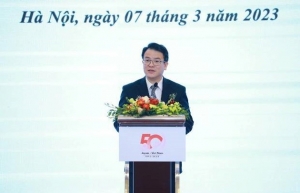 | MPI to strengthen ODA cooperation between Vietnam and Japan The Vietnam-Japan relationship was one of the most successful bilateral development cooperation relationships in recent years. |
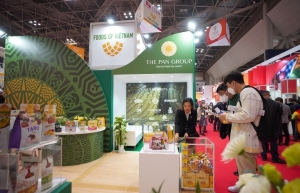 | Foodex Japan 2023 pushes Vietnamese products to conquer Japanese market The 48th edition of the International Food and Beverage Exhibition, Foodex Japan 2023, held in Tokyo from March 7 to 10, provides an excellent opportunity to introduce high-quality Vietnamese products to Japanese consumers on a wider scale. |
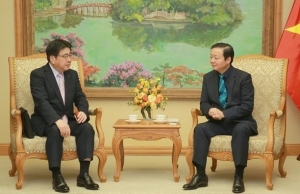 | Deputy PM pledges support for Japanese firm’s projects using modern technology Deputy Prime Minister Tran Hong Ha pledged maximum support for Marubeni Corporation to shift its projects using new and modern technology to Vietnam, while receiving a leader of the Japanese firm in Hanoi on March 10. |
What the stars mean:
★ Poor ★ ★ Promising ★★★ Good ★★★★ Very good ★★★★★ Exceptional
Related Contents
Latest News
More News
- Internal strengths attest to commitment to progress (February 19, 2026 | 20:13)
- Vietnam, New Zealand seek level-up in ties (February 19, 2026 | 18:06)
- Untapped potential in relations with Indonesia (February 19, 2026 | 17:56)
- German strengths match Vietnamese aspirations (February 19, 2026 | 17:40)
- Kim Long Motor and AOJ Suzhou enter strategic partnership (February 16, 2026 | 13:27)
- Haiphong welcomes long-term Euro investment (February 16, 2026 | 11:31)
- VIFC in Ho Chi Minh City officially launches (February 12, 2026 | 09:00)
- Norfund invests $4 million in Vietnam plastics recycling (February 11, 2026 | 11:51)
- Marico buys 75 per cent of Vietnam skincare startup Skinetiq (February 10, 2026 | 14:44)
- SCIC general director meets with Oman Investment Authority (February 10, 2026 | 14:14)

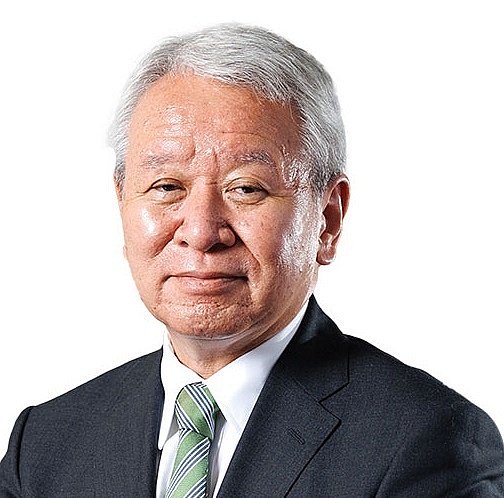
 Tag:
Tag:



















 Mobile Version
Mobile Version